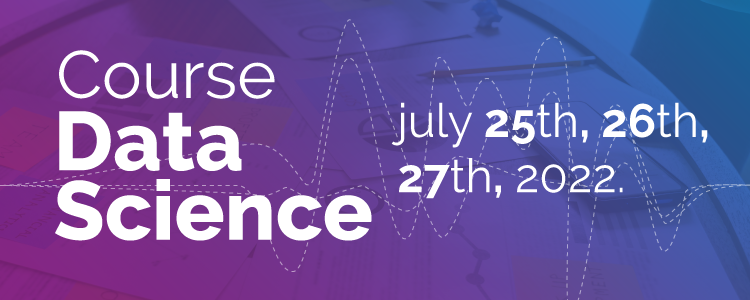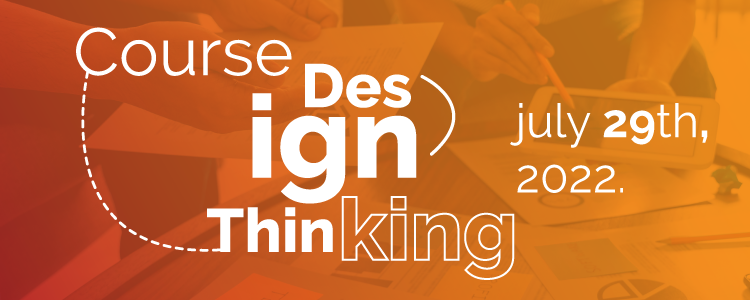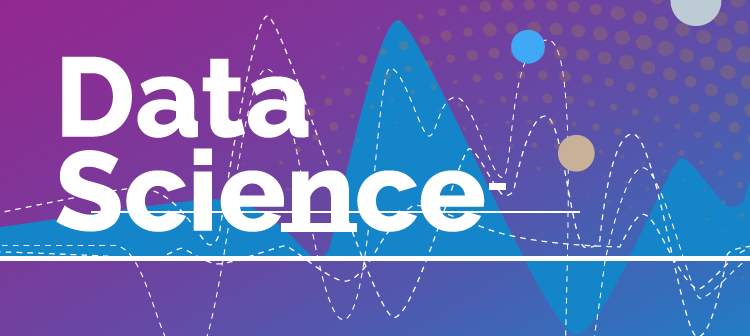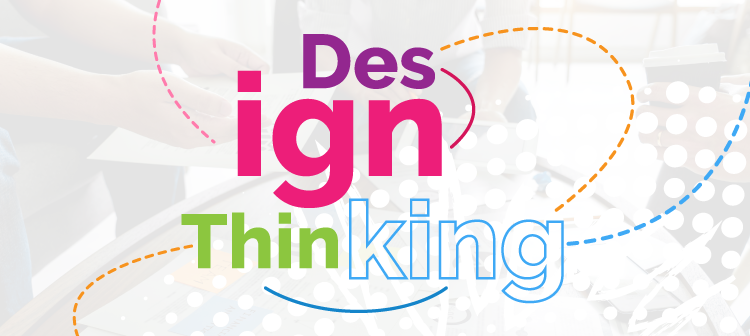Data Science and Design Thinking - Ingeniería
- Rectoría
- Vicerrectorías
- Facultades
- Institutos
- Educación Continua
- Compromiso Social
- Egresados
- Prácticas formativas
- Institucional
- Internacionalización
- Bibliotecas
- Libros, revistas y publicaciones
- Medio universitario - Vida en la Javeriana
- Hoy en la Javeriana
- Javeriana Estéreo
- Pacto educativo global - Sostenibilidad
- Registro Académico
- Intranet
- Campus Virtual
- Servicios externos
- Mi correo
- Perfiles y Capacidades
- Apoyo financiero
- Donaciones
- Estudia en la Javeriana

- Rectoría
- Vicerrectorías
- Facultades
- Institutos
- Educación Continua
- Compromiso Social
- Egresados
- Prácticas formativas
- Institucional
- Internacionalización
- Bibliotecas
- Libros, revistas y publicaciones
- Medio universitario - Vida en la Javeriana
- Hoy en la Javeriana
- Javeriana Estéreo
- Pacto educativo global - Sostenibilidad
- Registro Académico
- Intranet
- Campus Virtual
- Servicios externos
- Mi correo
- Perfiles y Capacidades
- Apoyo financiero
- Donaciones
- Estudia en la Javeriana

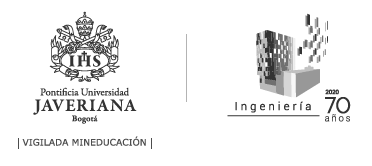
Lugar: Campus Universitario Pontificia Universidad Javeriana - Bogotá, Colombia.
We welcome you to the courses in Data Science and Design Thinking that will be offered by a world recognized scholar, Professor Jennifer Widom at Javeriana University. Jennifer Widom is the Frederick Emmons Terman Dean of the School of Engineering and the Fletcher Jones Professor in Computer Science and Electrical Engineering at Stanford University. More information about her can be found at: https://profiles.stanford.edu/jennifer-widom We aim to have equal-gender participation and students coming from the regions of Colombia in both courses.
The 3-day in-person course in Data Science is designed mainly for excellent engineering students who have some already acquired skills in programming. The 1-day in-person course in Design Thinking aims both advanced high school students as well as engineering and design students. To postulate students will be required to have been registered officially as a students in the most recent academic period (first semester of 2022) and to present a letter of recommendation from an academic authority of the institution where students are registered. For the course in Data Science, please note that students from all universities in Colombia are welcomed, but consider that we will guarantee 20 seats to schools of engineering who are members of ACOFI (please contact ACOFI for that purpose). In any case, These courses represent a unique opportunity not only to learn, but to interact with students from different institutions and regions of Colombia. We hope with these two wonderful courses that we can contribute to the construction of a strong engineering ecosystem in Colombia. Enjoy!
Lope Hugo Barrero
Dean School of Engineering
Pontificia Universidad Javeriana
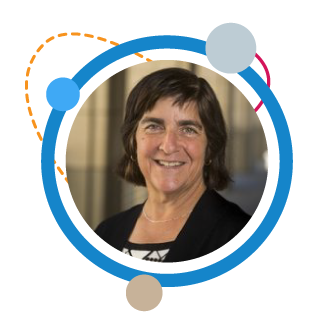
Jennifer Widom is the Frederick Emmons Terman Dean of the School of Engineering and the Fletcher Jones Professor in Computer Science and Electrical Engineering at Stanford University. She served as Computer Science Department Chair from 2009-2014 and School of Engineering Senior Associate Dean from 2014-2016. Jennifer received her Bachelor's degree from the Indiana University Jacobs School of Music in 1982 and her Computer Science Ph.D. from Cornell University in 1987. She was a Research Staff Member at the IBM Almaden Research Center before joining the Stanford faculty in 1993. Her research interests span many aspects of nontraditional data management. She is an ACM Fellow and a member of the National Academy of Engineering and the American Academy of Arts & Sciences; she received a Guggenheim Fellowship in 2000, the ACM SIGMOD Edgar F. Codd Innovations Award in 2007, the ACM-W Athena Lecturer Award in 2015, and the EPFL-WISH Foundation Erna Hamburger Prize in 2018.
july 25th, 26th, 27th - 2022
Course duration: 24 h | Face to face modality
- Prerequisites - none
- Topics - Data-driven applications and services; brief introduction to data manipulation and analysis, data mining, machine learning, data visualization, data collection and preparation; pitfalls: correlation and causation, underfitting and overfitting, privacy, and others; brief introduction to languages, systems, and platforms for working with data
- Length – 1.5-2 hours
- Style - Prof. Widom presentation with audience Q&A
- Prerequisites - O1
- Topics - Manipulating and analyzing data using spreadsheets including pivot tables
- Length – 2-2.5 hours
- Style - Students work along with Prof. Widom and work on assigned problems
- Software - Google Sheets
- Prerequisites - S1
- Topics - Data visualization motivation; spreadsheet bar charts, pie charts, scatterplots, maps
- Length – 1.5-2 hours
- Style - Students work along with Prof. Widom and work on assigned problems
- Software - Google Sheets
- Prerequisites - V1
- Topics - Tableau bar charts, pie charts, scatterplots, packed bubbles, maps; Tableau dashboards; publishing interactive visualizations
- Length – 1-2 hours
- Style - Students work along with Prof. Widom and work on assigned problems
- Software - Tableau Public
- Prerequisites - O1
- Topics - Introduction to relational database management systems (RDBMS); relational data model; creating and loading data; basics of SQL query language
- Length – 1.5-2 hours
- Style - Prof. Widom presentation interleaved with students working on assigned problems
- Software - SQLite relational database system via Google Colab
- Prerequisites - D1
- Topics - More advanced SQL constructs (aggregation, subqueries, data modification, and others); coverage configurable to available time
- Length - 1-2 hours
- Style - Prof. Widom presentation interleaved with students working on assigned problems
- Software - SQLite relational database system via Google Colab
- Prerequisites - O1
- Topics - Introduction to Python; manipulating data in Python; plotting in Python; Pandas package
- Length - 3-4 hours
- Style - Prof. Widom presentation interleaved with students working on assigned problems
- Software - Python via Google Colab
- Prerequisites - O1
- Topics - History of data mining; market-basket data; frequent item-sets; association rules
- Length - 1 hour
- Style - Prof. Widom presentation with audience Q&A
- Prerequisites - M1, D2
- Topics - Computing frequent item-sets and association rules using relational databases and SQL
- Length - 1-2 hours
- Style - Prof. Widom presentation and students work on assigned problems
- Software - SQLite relational database system via Google Colab
- Prerequisites - M1, P1
- Topics - Computing frequent item-sets and association rules using Python
- Length – 1.5-2 hours
- Style - Prof. Widom presentation and students work on assigned problems
- Software - Python via Google Colab
- Prerequisites - O1 required, S1 recommended but not required
- Topics - Regression introduction and applications; simple linear regression; regression and correlation; regression shortcomings and dangers; polynomial regression
- Length – 1.5-2 hours
- Style - Prof. Widom presentation and students work on assigned problems
- Software - Google Sheets
- Prerequisites - O1, L1 recommended but not required
- Topics - Introduction to classification; k-nearest-neighbors; decision trees; Naïve Bayes classifiers
- Length – 1 hour
- Style - Prof. Widom presentation with audience Q&A
- Prerequisites - O1, L2
- Topics - Introduction to clustering; k-means
- Length - Less than 1 hour
- Style - Prof. Widom presentation with audience Q&A
- Prerequisites - P1, one or more of {L1, L2, L3}
- Topics - Python packages for regression, classification, and clustering
- Length - 1-2 hours depending on coverage
- Style - Prof. Widom presentation and students work on assigned problems
- Software - Python via Google Colab
- Prerequisites - O1, P1
- Topics - Manipulating data in R; plotting in R
- Length - 1-2 hours
- Style - Prof. Widom presentation interleaved with students working on assigned problems
- Software - R via Google Colab
- Prerequisites - O1
- Topics - correlation versus causation; determining correlation; determining causation
- Length - Less than 1 hour
- Style - Prof. Widom presentation with audience Q&A
- Prerequisites - P1
- Topics – Modeling networks as undirected and directed graphs; analyzing graph properties; programming using networkx package
- Length – 1.5-2 hours
- Style - Prof. Widom presentation and students work on assigned problems
- Software - Python via Google Colab
- Prerequisites - P1
- Topics – Text analysis & natural-language processing; image analysis
- Length – 1.5-2 hours
- Style - Prof. Widom presentation and students work on assigned problems
- Software - Python via Google Colab
july 29th - 2022
Course duration: 8 h | Face to face modality
Number of participants: Minimum 12, maximum 30, will be divided into teams of 4-5
Length: Full day. Workshop activities run 5-6 hours not including breaks and lunch. It’s crucial that all participants commit to stay for the full day – the team-based format doesn’t allow for any participants to miss any part of the workshop. If lunch can be brought in during the workshop it helps with continuity of activities, otherwise we will take a break.
Room setup: No theater seating! The room must be open and configurable so groups of participants can work together – preferably with tables, or desks that can be moved into groups. It is also very important to have easels, boards, or wall space available for each group, as they brainstorm and prototype ideas.
A/V requirements: Projection for Prof. Widom’s Macbook laptop is required, including audio capability if possible.
Internet requirements: None
Participant background: No background of any type is required. Ideally the teams will be mixed gender and include a variety of disciplinary interests. Participants can be a mixture of students at any level as well as non-students (e.g., instructors, faculty, administrators).
Participant preparation: No preparation is needed. Participants should wear casual, comfortable clothes, as there will be lots of moving around and interaction. Most importantly participants should come with an open mind, ready to be engaged and involved – for the workshop to be successful, everyone needs to be an active contributor.
Format: After warm-up activities and presentation of the design-thinking process, participants are divided into teams and given a design challenge. The remainder of the day is spent guiding teams through the design-thinking process in a highly interactive, fast-paced environment. The day ends with each team presenting their design solution, and participants discussing what they learned through the process.
The following materials are necessary for the workshop. If they are difficult to acquire or not available, please let Prof. Widom know in advance so she can plan accordingly.
- Post-it or other brand of sticky notes (approx. 6-10cm x 6-10cm): minimum 1 pad of 50+ sheets per participant
- Sharpies or similar felt pens: minimum 1 per participant, dark color, medium point preferred
- Large pads of white poster paper (approx. 50cm x 60cm): minimum 4 sheets per group
- Easels, boards, or wall space for poster paper: minimum two easels per group, or equivalent board or wall space where tape can be used
- Tape for poster paper: one roll per group
In addition, each participant should bring a notepad or paper plus pen or pencil, for taking notes.
The following construction materials are useful when available, but no items are required. Other construction materials are also welcome. Quantities are suggestions only – provide whatever quantities are readily available.
- Colored construction paper (100 sheets)
- Scissors (1 per team of 4 participants)
- Tape (can be same as provided for poster paper)
- Staplers and staples (2-3 total)
- Fasteners: rubber bands, paper clips, binder clips
- String and/or yarn (2-3 total)
- Popsicle sticks or tongue depressors, straws, ribbon
- Aluminum foil (2-3 total)
- Cardboard
